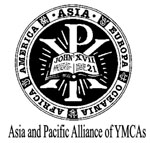|
One of the oldest continuing program of APAY, the Advanced Studies Program was introduced in 1982. The main objectives of this month-long training is to enhance YMCA professional secretaries’ ability to critically analyze the ongoing social processes, based on the life and teachings of Jesus Christ and develop the YMCA professionals who are mission-responsive, socially relevant and effective institutional leaders.
A total of fourteen (14) Senior YMCA professionals participated at this program. They were (i) Ronel Francis Costa from Savar YMCA Bangladesh, (ii) Pu Wangyu from Shanghai YMCA and (iii) Zhu Aimin from Nanjing YMCA, China, (iv) Dion Chen from YMCA of Hong Kong, (v) Hung Suk Yan Beatrice and (vi) Chan Pik Yan Selina from the Chinese YMCA of Hong Kong, (vii) Sam Robert Ponnian from the National Council of YMCAs of India and (viii) E. V. Shaiju from Kottayam YMCA, India, (ix) Lee, Jeong-Hee from Guri YMCA and (x) Kim Youngil from Daegu YMCA, Korea, (xi) Hitoshi Kanda from Osaka YMCA, Japan, (xii) Wei Pao-Chen from Tainan YMCA, (xiii) Lin Pei-Yun and (xiv) Chen Yun-Ting from Taipei YMCA, Taiwan.
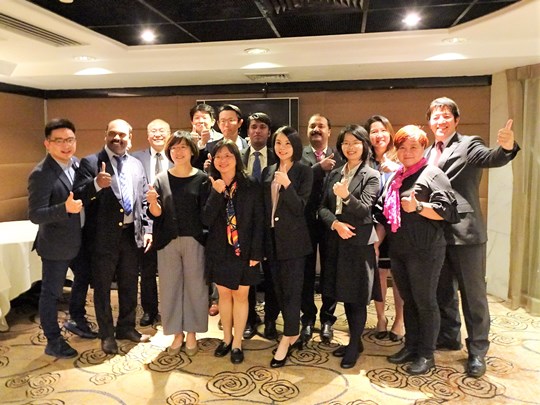
Dr. Geevarghese Mor Coorilos from South India, Dr. Ema Leslie from Cambodia, Dr. Tobias Bradner and Dr. Hope Anthone from Hong Kong were the external resource persons, beside Nam Boo Won, Duncan Chowdhury and Chan Beng Seng from APAY.
The main areas of study in the course curriculum were Contemporary Mission of the YMCA, Contextual Theology, Social Analysis, Practices of Biblical Reflections, possible YMCA program responses like Global Citizenship Education, Alternative Tourism, UN Agenda 2030 for Sustainable Development Goals, Gender Mainstreaming, Social & Solidarity Economy and final section was related to institutional development of the YMCA like the Board Governance, Movement Strengthening, Organizational Review & Strategic Planning.
At the concluding section of the program, all the participants were required to prepare a re-entry plan, a paper reflecting the learning and also the plan of a new action oriented program based on the teachings of ASP, that each of them will implement upon their return to their respective home country.
We are indebted to the Chinese YMCA of Hong Kong and the YMCA of Hong Kong for their support to materialize this program. The YMCA of Hong Kong had hosted the Welcome Dinner for the participants on 5 November and the Chinese YMCA of Hong Kong hosted the Graduation Dinner on 30 November 2018.
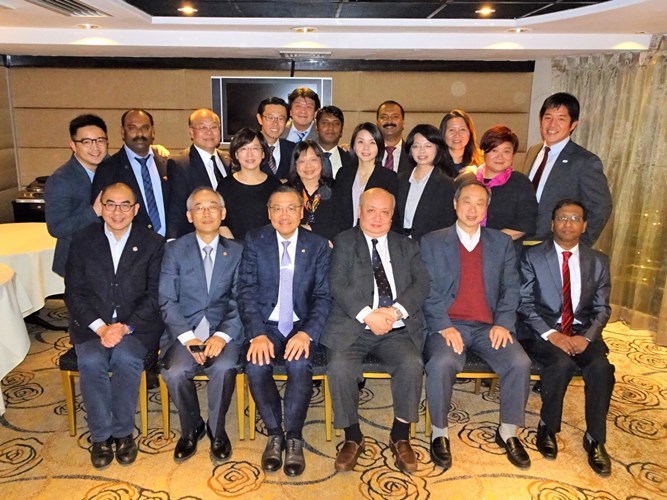
On 30 November, Dr. Arnold Cheng, Vice President of Chinese YMCA of Hong Kong welcomed all the participants and guests at the Graduation Dinner on behalf of the board of Chinese YMCA of Hong Kong. Mr. Ronald Yam, Treasurer of APAY and World Alliance of YMCAs, Mr. Karl Lau, General Secretary of Chinese YMCA of Hong Kong & Mr. Peter Ho, General Secretary of YMCA of Hong Kong also adorned the ceremony with their kind presence. Mr. Nam Boo Won, General Secretary of APAY delivered the words of felicitations and encouragement for the participants. The ceremony was also attended by key staff members of Chinese YMCA of Hong Kong and YMCA of Hong Kong, the resource persons of Advanced Studies Program and members of the APAY family.
Certificates were awarded to all the successful participants and they also pledged their firm commitment to serve their respective communities through the YMCA. We wish all the participants a bright and colourful YMCA career in future.
~ Duncan Chowdhury, Executive Secretary
The School of Peace at its Second Month
The School of Peace 2018 completed the second month of the program in November 2018 as planned with various topics and practical experiences shared by the resource persons. A 17th participant joined in November, recommended by Yogyakarta YMCA.
In November, the subjects were focused on challenging issues for peace and some practical skills in peacebuilding. The issues included the neoliberal economy and its effects in the lives of Asian people. This discussion was connected to the UN Declaration of Human Rights and other UN conventions and protocols. SoP 2010 alumnus, Tirmizy E. Abdullah, now a faculty of Mindanao State University in Marawi, Philippines, facilitated the said sessions. Dr. Asnath Niwa Natar, from Fakultas Teologi of Universitas Kristen Duta Wacana (UKDW) facilitated the workshop and sharing of experiences on gender roles and the root cause of gender violation within culture, tradition and religion. She also highlighted the discussion on the Convention of Women and Children’s Rights and the feminist movements in society.
The next section on values and skills started with Nonviolent Communication. ICF Coordinator, Muriel Orevillo Montenegro, facilitated the session by introducing the basic four components of the Nonviolent Communication model by Marshall Rosenberg. She gave exercises for the participants to work on, stressing that communication is an important component in peacebuilding. An equivalent of three-days sessions with assignments to be accomplished in the evenings were allotted for the subjects in Peace Education and Peace Journalism facilitated by Ms. Josefina V. Villanueva, and Prof. Jeanette Lee C. Patindol, respectively. Both are faculty members of the Peace Studies program, a consortium between Pax Christi Institute and University of St. La Salle, Bacolod City, Philippines. The participants had to wrestle with the question, “Why do we teach Peace?” A review on the concepts of Negative/Positive Peace and Conflict was done to connect these with Peace Education. As their final assignment, the participants were tasked to formulate a module on topics of interest for various age groups. Prof. Jeanette Lee C. Patindol pointed out how journalism can have both negative and positive impact to people’s lives. She showed how Peace Journalism can also effect social change. Among the exercises the participants had to do was to identify news articles that are oriented to violence, and re-write them to make the articles peace-oriented without changing the essence of the news items.
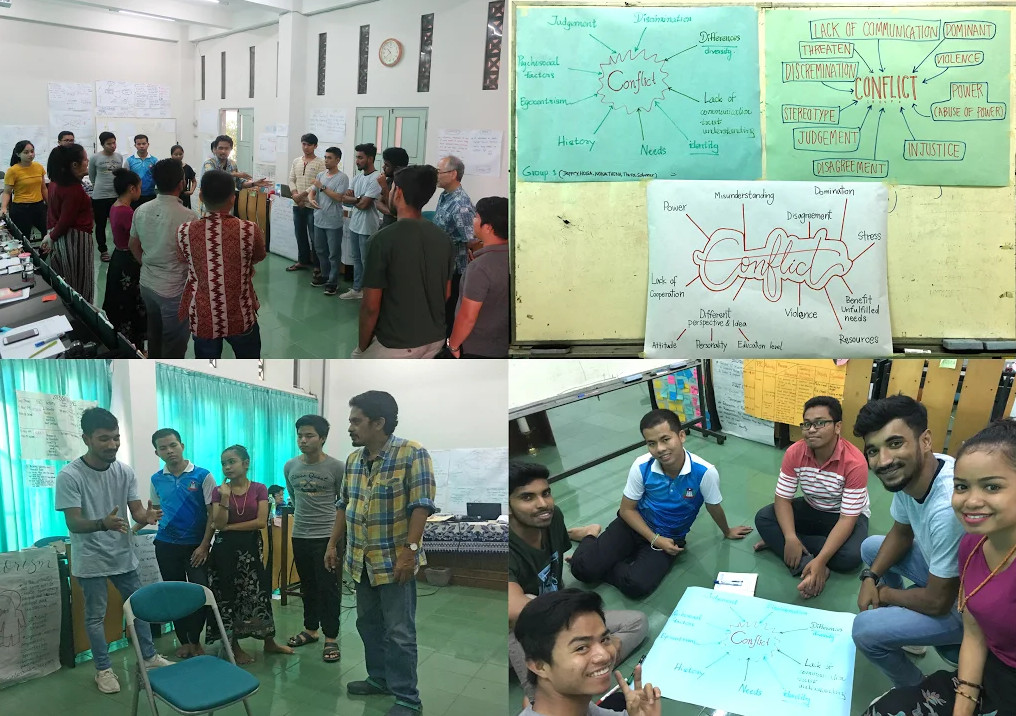 |
| ↑ Community Organization Session
|
An important skill in peacebuilding is Community Organizing (CO). Mr. Saleh Abdullah, an experienced organizer and human rights defender led the participants into workshops and simulation games that called upon them to look into their respective communities; examine their needs for change, and to understand their capacities. It was only after drawing out from the participants their understanding and realization of the importance of CO Mr. Saleh gave a summary of the principles of social analysis and community organizing. The sessions on CO were followed by sessions on Trauma Healing, which was facilitated by Ms. Nevi Kurnia Arianti of Univerity of Gadjah Madah, Yogyakarta and Dr. Mariani Sutanto of UKDW. Both shared with the participants the definition, signs and symptoms of Post-Traumatic Stress Disorder (PTSD), understanding ways to respond to traumatic events and, importantly, and how can we integrate trauma healing into peace work. Towards the last week, the participants tasked to develop doable plans for Echo-Trainings and follow up programs. The facilitator, Dr. Muriel Orevillo Montenegro asked the participants of each country represented to write their theory of change, the vision and mission for their programs or projects, their program plan of action, indicators, and consequently, the anticipated impact. The participants struggled to write and present their workshop outputs, something they can do back in their respective countries.
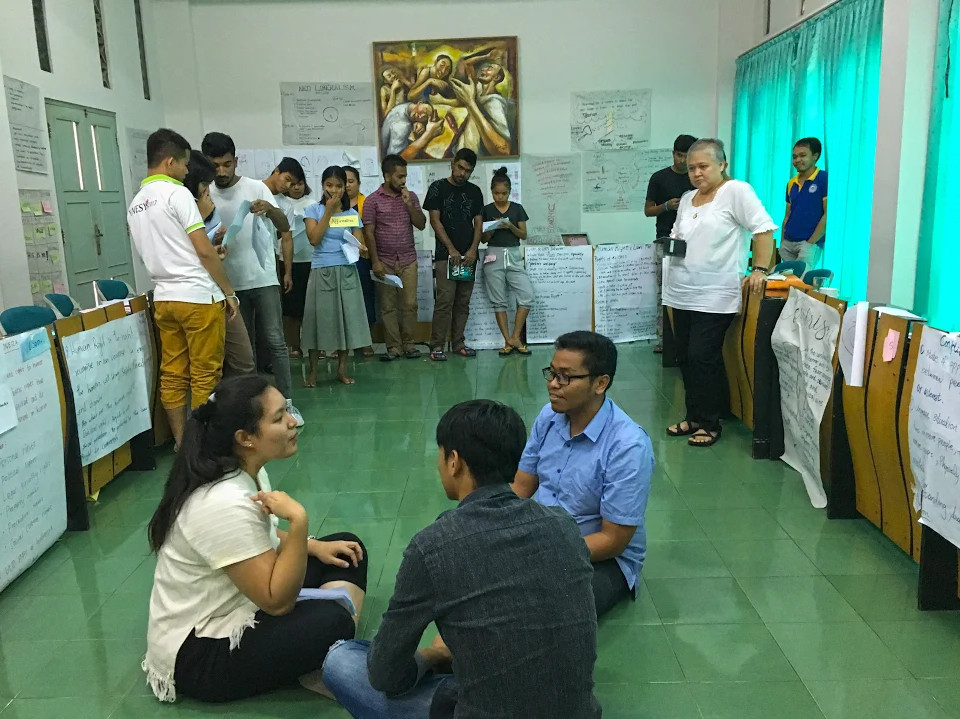 |
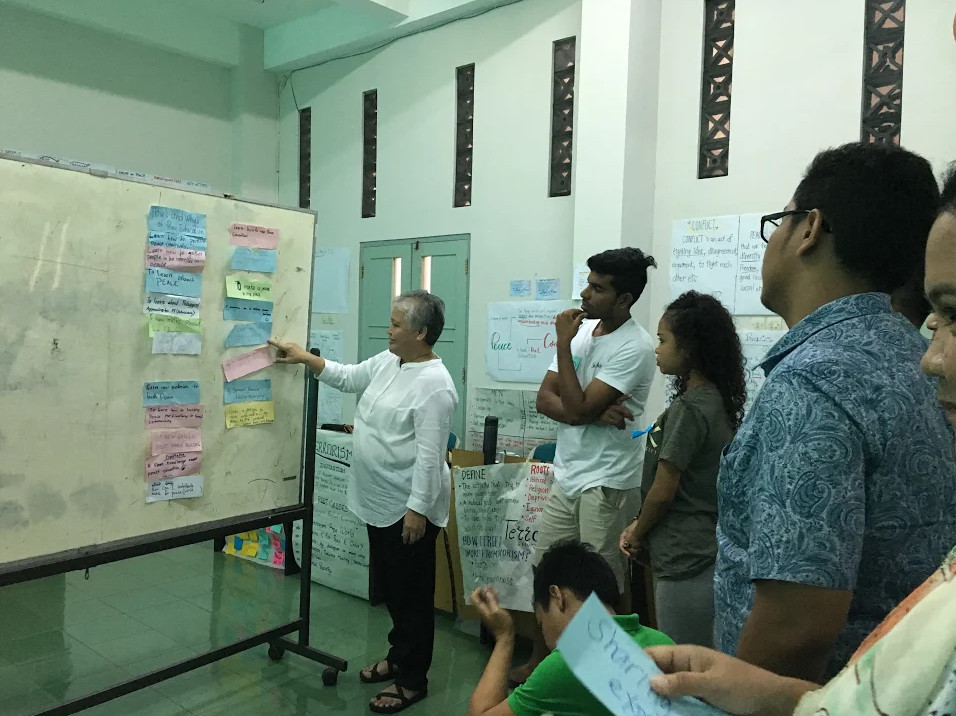 |
| ↑ Peace Education Session |
The week-ends were spent for supplementary activities. On one week-end, the participants went to the village of Mendut very early in the morning to visit the Gereja Ayam, known as “Chicken Church,” located in the hills of Magelang, Central Java. Then they proceeded to the historical heritage site of Borobudur. A conversation with the curator of the Mendut art gallery on the culture and indigenous religions of Java was insightful. This was followed by a visit to the Buddhist monastery and a conversation on the history of the Buddhist tradition in Indonesia with the Buddhist monk. On November 18, 2018 the participants attended the closing worship service of the YMCA-YWCA World Week of Prayer on the theme “Youth Empowerment for Good”. Mr. Nam Boo Won, General Secretary of APAY also made a three-day visit to inspire the SoP participants.
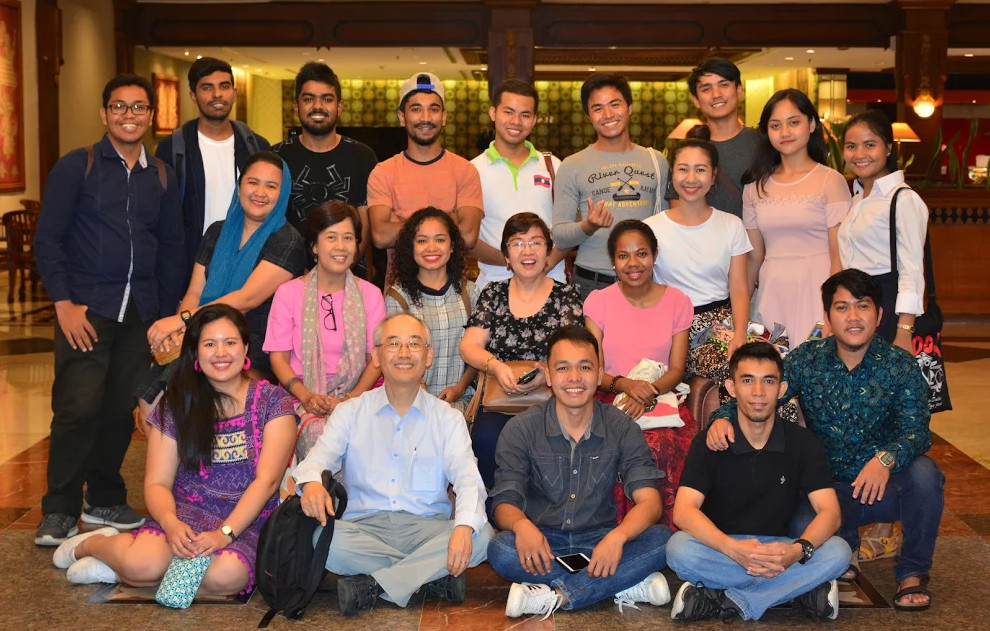 |
| ↑ Group photo at the Week of Prayer
|
The solidarity and closing ceremony of SoP 2018 was held on November 28, 2018 at the campus of Universitas Kristen Duta Wacana (UKDW), attended by guests and graced by cultural performances from each country participants. The Dean of UKDW theology faculty, Dr. Paulus Sugeng Widjaja expressed his appreciation and congratulations to all SoP 2018 participants, especially to the Interfaith Cooperation Forum for this important initiative toward peace building work in Asia. He hopes to see this collaboration keep going as often in the future. In behalf of ICF, Dr. Muriel Orevillo Montenegro gave the words of appreciation and thankfulness to the faculty and the Indonesia YMCA for actively hosting and organizing the program even though the time preparation was so limited from the beginning.
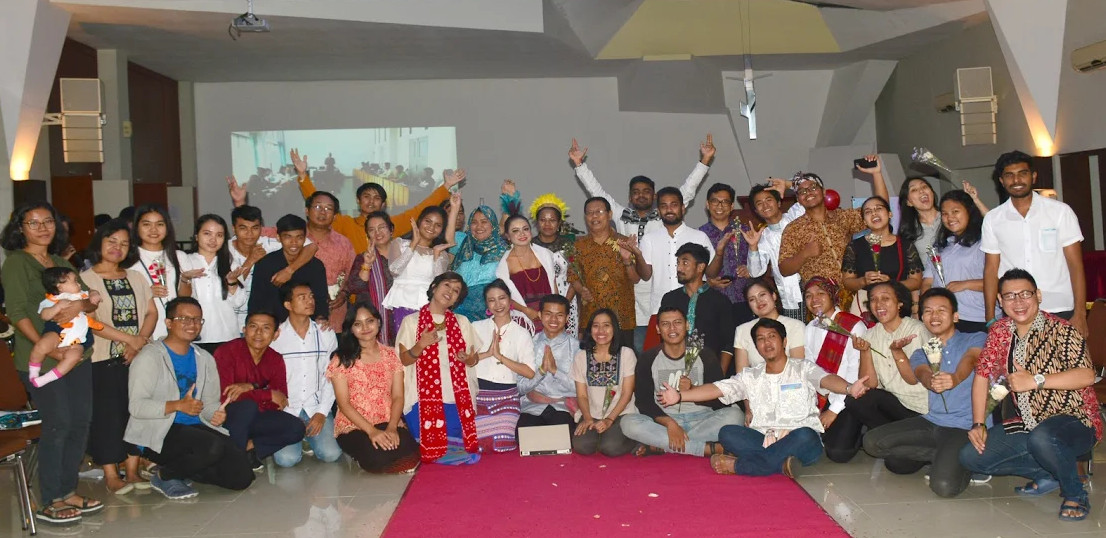 |
| ↑ Group Photo of Closing day
|
Thus the ICF School of Peace came to an end with the participants returning to their homeland with aspirations to work for peace in their own communities for the days to come.
~ Hem Sopharak “Small”, ICF Program Officer
2018 World Peace Convention - Peacebuilding Through People Power for Reconciliation of Korean Peninsula
The 2018 World Peace Convention was held in Incheon, Korea from 30th October to 1st November. It was hosted by National Council of YMCAs of Korea and 250 participants from 17 countries joined this convention. The theme of Peace Convention was “People Building Peace: Restoration of Just Relations, Historical Reconciliation and Nurturing a Culture of Peace, for Sang Saeng(Life Together) in Korean Peninsula”. This Convention consisted of 3 parts – the International Symposium and Workshop in Incheon, the Peace Pilgrimage at Korean Demilitarized Zone (DMZ), and the Peace Cultural Festival in Seoul, ending with a peace march and the Seoul Declaration.
The People Are the Main Subjects of Peace Building
Based on the firm conviction that “the people are the subjects in peace-building,” and after two Korean leaders’ Summits, Korea YMCA is committed to work for people-initiated socio-cultural exchanges and cooperation in the international dimension, beyond geopolitical concerns or government-level diplomacy. The ongoing post-Olympics process of peace-building in the Korean peninsula and East Asia continues to remind us of the significance of people’s own initiatives in building awareness about the history of conflicts, and in making collective efforts towards healing, reconciliation and common Sang Saeng (Life Together) among peoples and nations. Various historical experiences in many regions of the world have demonstrated the clear limits to the role of nation-states and their governments in overcoming political disputes and historical conflicts. It has become clear that people’s role and initiatives must be emphasized in order to achieve true and permanent peace in the nation and around the world. Thus there is an urgent need to create a people-initiated, independent peace process aimed at complementing governmental efforts towards historical reconciliation, healing and building of a community of life together—a process that will lead to fostering a culture of peace among the peoples.
Peace convention Part 1. International Symposium and Workshop
In the first part of the convention, we tried to find creative convergence and sharing of wisdom among the peoples who have suffered deep wounds and injustices due to wars and violent conflicts in various regions of the world. Two keynote speakers (David Satterwhite/USA and Kim Young Ho/Korea) and four case presenters (Gerhard Rein/Germany, Sarojini Nadar/Republic of South Africa, Johnston McMaster/Ireland, Max Ediger/USA) shared their thinking about conflict and reconciliation based on their experiences and country issues. Through 11 workshops, we focused on peacebuilding case studies and the role of people for seeking peace. It was good space to share many ideas and agenda and to think about how people power can lead in peacebuilding, gradually but powerfully.
Peace convention Part 2. Peace Pilgrimage at Korea Demilitarized Zone (DMZ)
After the symposium and workshop, participants moved to Cheorwon City which is located near to North Korea. A big memorial ceremony for war victims was held in front of the former North Korea Labor Party building. Participants also climbed up Soi Mountain to pray for reunification of the Korea Peninsula.
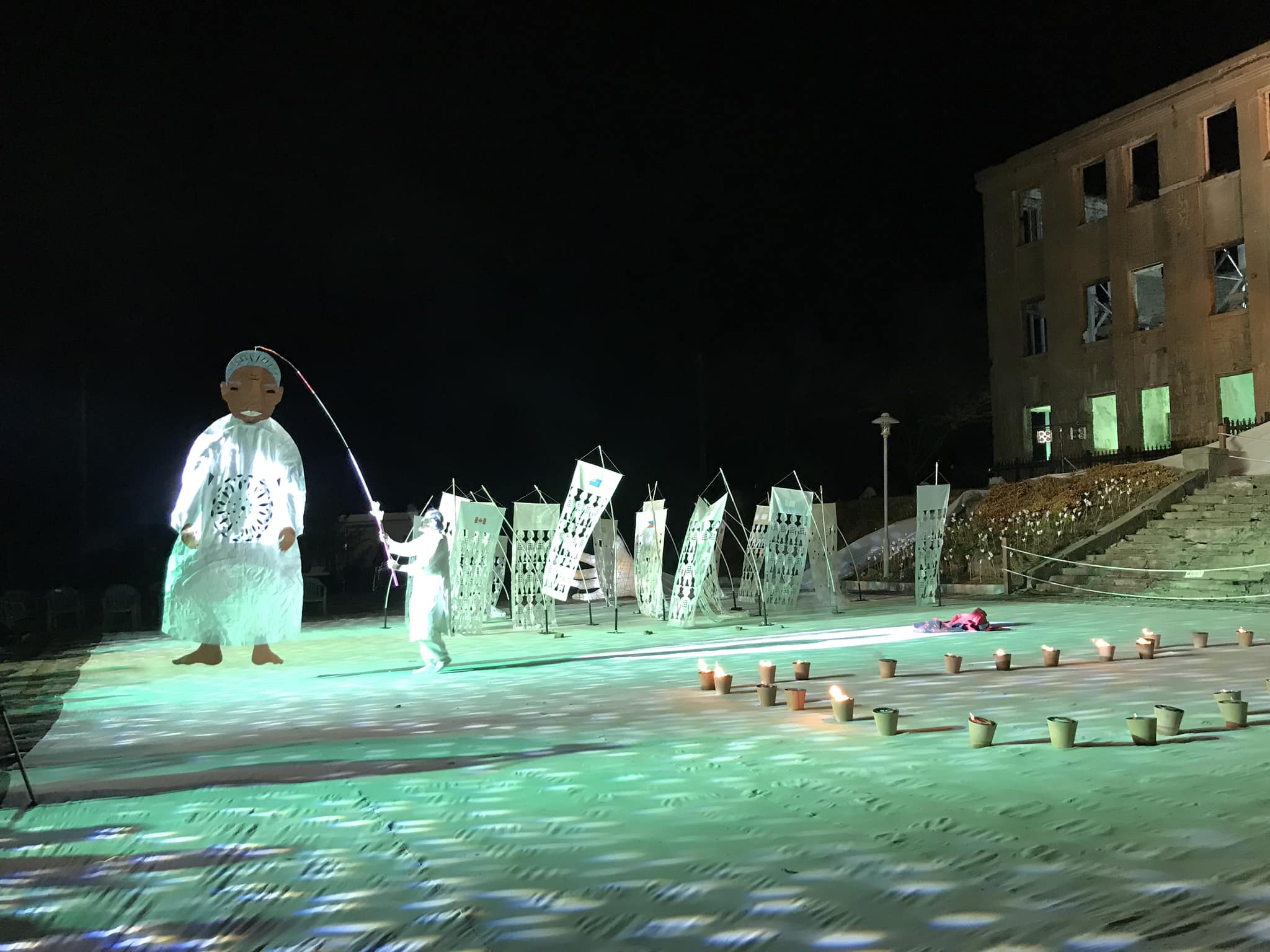 |
| ↑ Ceremony for war victims in front of Labor's party building
|
Peace convention Part 3. Peace Cultural Festival with Peace March and Seoul Declaration
In the final part of the convention, all the international participants joined the Peace Cultural Festival at the Gwang Hwa Mun Square in Seoul. They marched together with over 1,000 local Korea YMCA members and related other NGO members at the central area of Seoul calling for peace in the Korean peninsula. “Seoul Declaration on a peaceful future of the Korea Peninsula and East Asia” was adopted at the end of the march.
At this 2018 World Peace Convention Mr.Nam Boo Won, Mr. Chan Beng Seng, Ms. Cristina Miranda, Ms, Lee Ji Yoon from APAY were invited as a facilitators and discussants. During the International Symposium and Workshop Sessions each of the staff joined in different subject session and had actively participated at the Peace Convention. They also contributed immensely to the development of Seoul Declaration as part of the Asia-Pacific regional level organization.
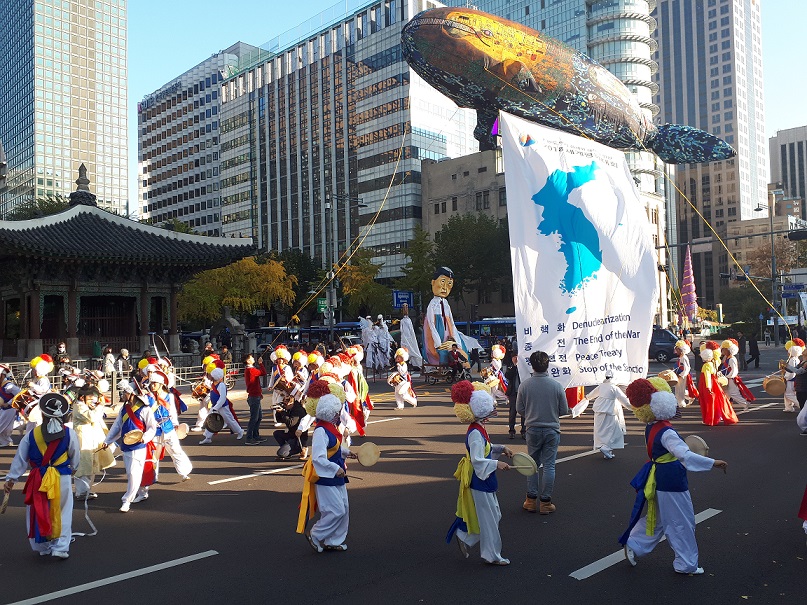
|
| ↑ Street Peace Marching in Seoul
|
The Peace Convention confirmed one more time that the peace process in Korean Peninsula should be strengthened through international cooperation and solidarity, taking into consideration the geopolitical as well as historical contexts of the region. Hopefully, Peace comes to Korea Peninsula led by people and supported by strong international solidarity. This would be a significant step forward in the peace-building process.
- Jiyoon LEE, APAY Intern
|
World Peace Convention 2018
Seoul Declaration on a peaceful future of the Korean Peninsula and East Asia
Under the theme “Restoration of Just Relations, Historical Reconciliation and Nurturing a Culture of Peace for SangSaeng (Life Together) in the Korean Peninsula”, 250 peace-loving citizens from 17 countries met together at World Peace Convention 2018 held in Incheon, Cheorwon and Seoul, Korea from 29th October to 1st November 2018.
We learned from theme presentations and symposia on peace and conflict-related topics. We also had the benefit of hearing the diverse experiences of participants from several countries that had gone through conflicts of various kinds – racial, ethnic, religious, colonial and ideological. They spoke about their efforts for healing, reconciliation and peace-building. We also visited Cheorwon DMZ area witnessing the stark reality of the long-lasting suffering of divided nation and people of Korea.
The Context of the World Peace Convention:
We, participants of the World Peace Convention 2018, have witnessed a long and perseverant journey of the Korean people towards democracy and peace. Among the most recent developments is the candle light revolution during 2016-17, which led to the birth of a new democratic government. South Korea's President Moon Jae-In is pushing forward a peace-building process on the Korean Peninsula by engaging proactively with the DPRK and the USA.
The Korean Peninsula peace movement must be seen in a broader historical perspective. In the context of recent geo-political dynamics in the region and beyond, the Korean peace movement has shown the need for pivotal action in order to untie the entangled knot of the dominant status quo, which is ruled by global hegemonic superpowers.
We affirm that:
- It is solely the Korean people’s inalienable right to make decisions for their own national future. Therefore, we are in strong solidarity with the peoples’ initiatives for building a lasting peace. We believe the empowerment of citizens/peoples is key to peace-building process.
- There is a strong inter-connectedness between peace-building efforts of Korean people and world peace movements, which share many of the same values. We recognize the continued vulnerability of the candle-light revolution in South Korea in the face of the interests of superpowers surrounding the Korean Peninsula. Therefore there is a strong need for building/strengthening solidarity with world peace movement initiated by diverse groups of global citizens.
- The present moment is a Kairos time to strengthen people’s networks so that civil society’s peace renaissance can blossom beyond borders!
- A paradigm shift is called upon: The current “Strategic Security-first” paradigm seeks to maintain a “peace” by relying on a constant militarized war-footing. This paradigm needs to be replaced by a “Peace-first” paradigm, which seeks alternative mechanisms that will build trust, instill confidence, promote mutual understanding and dialogue, seek non-military solutions, and enable the free flow of ideas towards a shared Korean vision of unity and reunification.
Our commitments to people-led civil society actions:
Peace and reconciliation is accomplished by fostering relationship and solidarity. The most effective way to do this is to create opportunities for direct dialogues at all possible levels. In practical terms, we commit ourselves to concrete actions within the three major objectives:
1. Advocacy for peace:
◦ Support the current summit process and engage in dialogues at all levels of society.
◦ Join efforts for ending the Armistice and declaring peace (treaty) in Korea.
◦ Lobby UN to end the UN Command structure in Korea, and advocate for a phased end to UN Security Council and other sanctions.
2. Public education:
◦ Prepare and disseminate educational material that provides background to the Korean conflict and efforts toward peace and reconciliation.
◦ Challenge mass media when they publish unfair interpretation of facts and events.
◦ Use alternative media to propagate positive stories on inter-Korean relations, including delegation visits to and from North Korea.
3. Dialogue and cooperative relationship building:
◦ Provide humanitarian aid, food security and development assistance.
◦ Encourage people-to-people contacts via mutual visits, cultural, academic, artistic, sporting and other exchanges.
◦ Organize information sharing, capacity building, and educational/awareness-raising programs.
We need to turn either/or thinking into both/and thinking. We need to transform win/lose propositions into win/win strategies.
We therefore call for a global solidarity with the people’s democratic and non-violent initiatives towards a lasting peace in the Korean Peninsula.
|

GATN Adventures with the YMCA of Kuala Lumpur
Adventures with the YMCA of Kuala Lumpur’s GATN are not just fun but inspiring. Here we tell you two adventures we had with two different GATN Teams accompanying us:
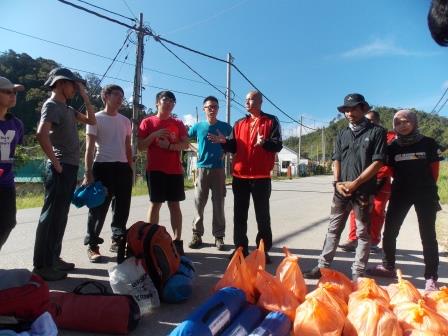
GATN Team from Chinese YMCA of Hong Kong University YMCA
We were off to a great start, when we hosted the best outdoor adventure we have ever had for seven days and six nights with an 11-member University YMCA (Hong Kong Baptist University) youths and their two advisors from Chinese YMCA of Hong Kong, accompanied by three staff from YMCA of Kuala Lumpur.
The team started of their journey to the base of Tok Nenek Mountain at dawn from the YMCA of Kuala Lumpur. Before heading up to the highland we had our breakfast at Tapah Town Rest and Recreation Highway Stop (R&R) to keep ourselves fueled up. We met up with our Mountain Guides at Kampung Raja (Raja Village), Cameron Highland and headed off to Lojing, a hamlet off of Gua Musang, Kelantan for a briefing and distribution of food rations to be carry up the mountain. The group started their journey on a 30 minutes ride on 4-Wheel Drive Vehicles to the base of the mountain, Pos Brooke. The group trekked for two hours on a flat ground until they reached a knee height river before taking a rest and lunch by a majestic waterfall. Adventure started at the late afternoon, where they had to cross the second river which was slightly above the knee height and crawled below the bamboo trees followed by an ascending climb up with their headlights switched on before reaching at the basecamp almost close to midnight. After a short rest, the group continued their climb up towards the peak before dawn in order to return back to the Basecamp by midnight. At the peak, it was more than beautiful, because the view was inspiring to all the participants. Everyone felt accomplished when they returned back to the base of the mountain. It was an unforgettable expedition for the Uni Y youth from Hong Kong to trek in a rainforest mountain for a full three days and two nights. A day before another adventure at Gopeng, Perak the group went out for a city hunt. The enthusiastic youths continued their adventure at Gopeng, Perak for White Water Rafting and Waterfall Abseiling.
The Uni Y Team had a meaningful sharing session over their 5 days excursion to Tok Nenek Mountain, including experiences about their City Hunt, White Water Rafting and Waterfall Abseiling. Participants were excited and thrilled about climbing up to Mount Tok Nenek as well their memorable experience riding the 4-Wheel Drive Vehicles to and back. It was unanimously concluded that everyone had a memorable excursion week in Malaysia through our GATN Programme.
GATN Program with Kuala Lumpur YMCA Members
The second GATN adventure was a one day mangrove planting at Kuala Selangor Nature Park by 20 participants from YMCA KL, a total of six children and 14 adults.
The participants were briefed on the pristine mangrove swamp and its vulnerable ecosystem by the Park Guides. A total of 20 mangrove seedling trees were planted by the participants. After the Learning and Volunteering Sessions were completed, the participants took their time to stroll around the Kuala Selangor Nature Park. By noon, the participants cleaned up their items and ate their pre-packed lunch before saying goodbye to the park. All participants arrived safely at the YMCA KL at 4:00pm.
The YMCA of Kuala Lumpur’s GATN program began in 2013 and have hosted 13 groups from different local YMCAs in Asia Pacific. The YMCA KL’s GATN Packages/Projects essentially focused on the Environment (Environmental Immersion and Advocacy), Culture and Heritage (Indigenous Immersion, Adventures and Cultural Immersions) and of the Disabled Community (Friends With Disabilities). The YMCA KL currently has five areas of focus in our GATN Programmes which are spread out into components of Rural Harmony of Homestay in Malaysia, Environment Immersion & Advocacy, Indigenous Immersion of Carey Island, Borneo Adventures & Cultural Immersion, Living through the History of Malaya & Journey to the Silent World.
If you or your young people are interested in having adventure and learning at the same time, please contact YMCA KL Programmes Department at +603-22741439 or email us at programmes@ymcakl.com.
~ Amielia Cheong, Program Secretary, Kuala Lumpur YMCA
APAY Christmas Message
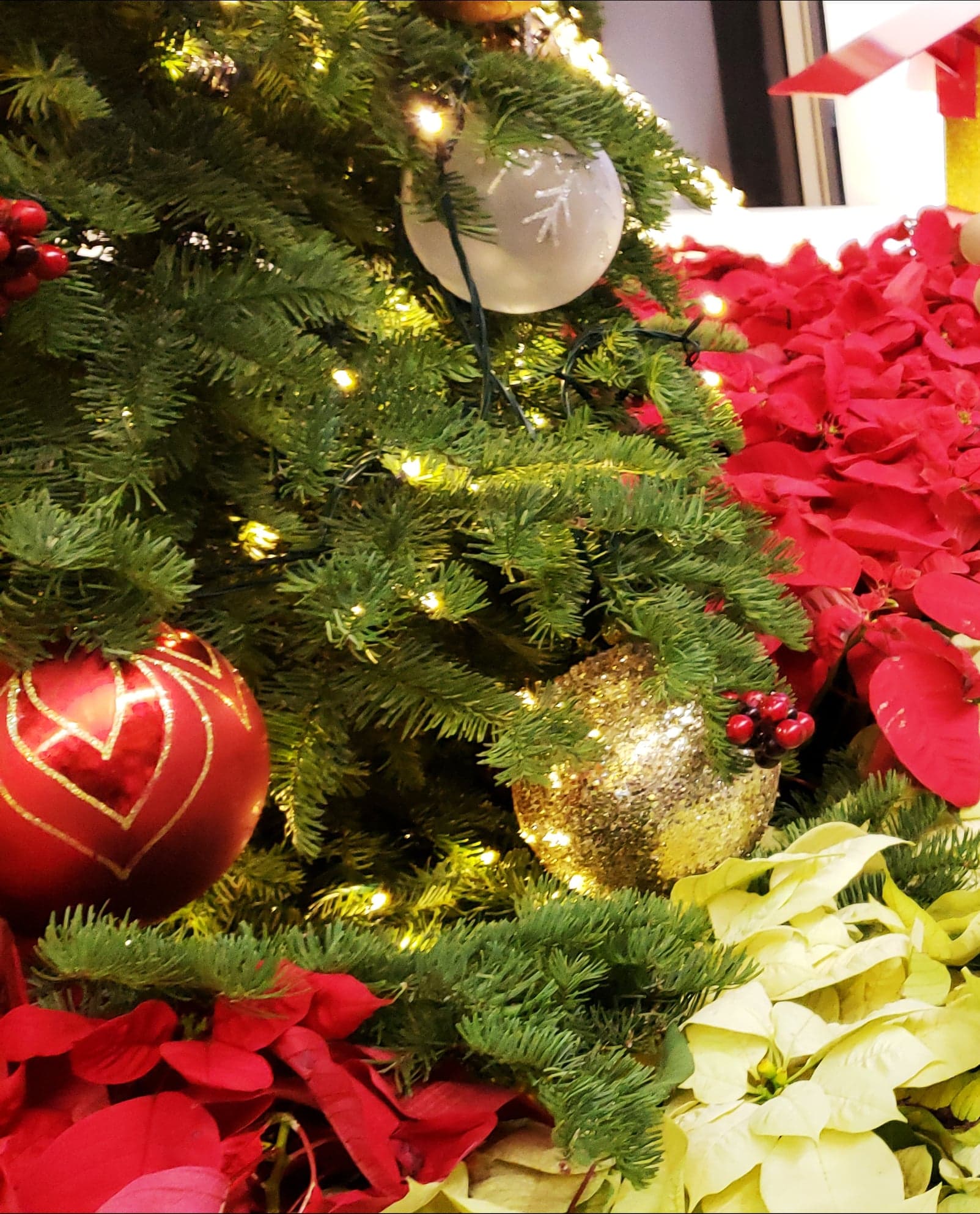
“Glory to God in the highest heaven,
and on earth peace among those whom he favors!"
(Luke 2:14)
Merry Christmas and a Blessed New Year to all!
In this Advent as we are earnestly waiting for the birth of Jesus Christ, may we be reminded of Christ’s selfless love towards humanity!
May this joyful season of Christmas give us renewed strength to carry on our responsibilities in building communities where peace, justice and love prevail.
Finally, may your family and friends be filled with warmth and joy as we celebrate this special and festive season of Christmas.
|

Babu Markus Gomes
President
|
|

Nam Boo Won
General Secretary
|
|
